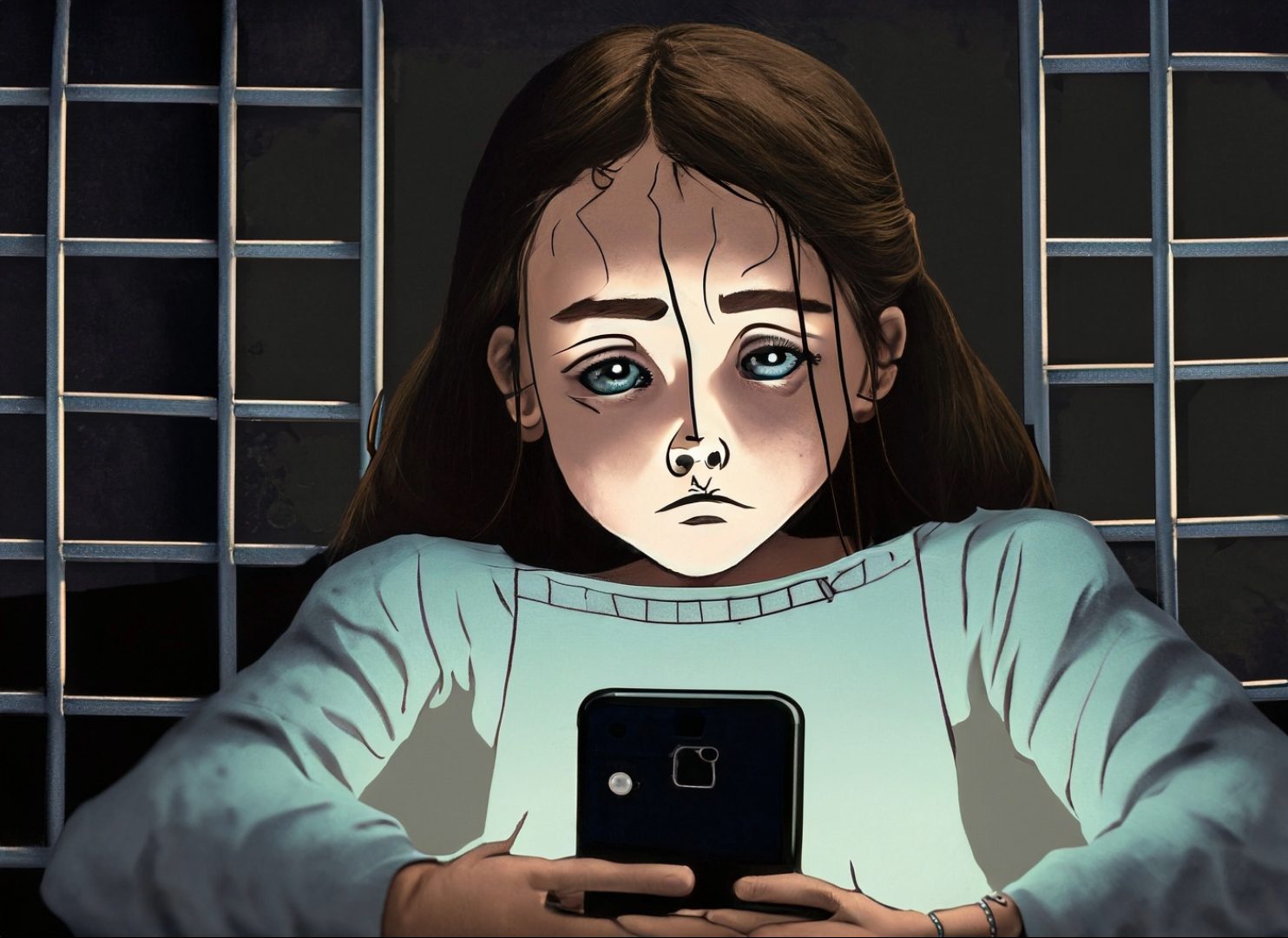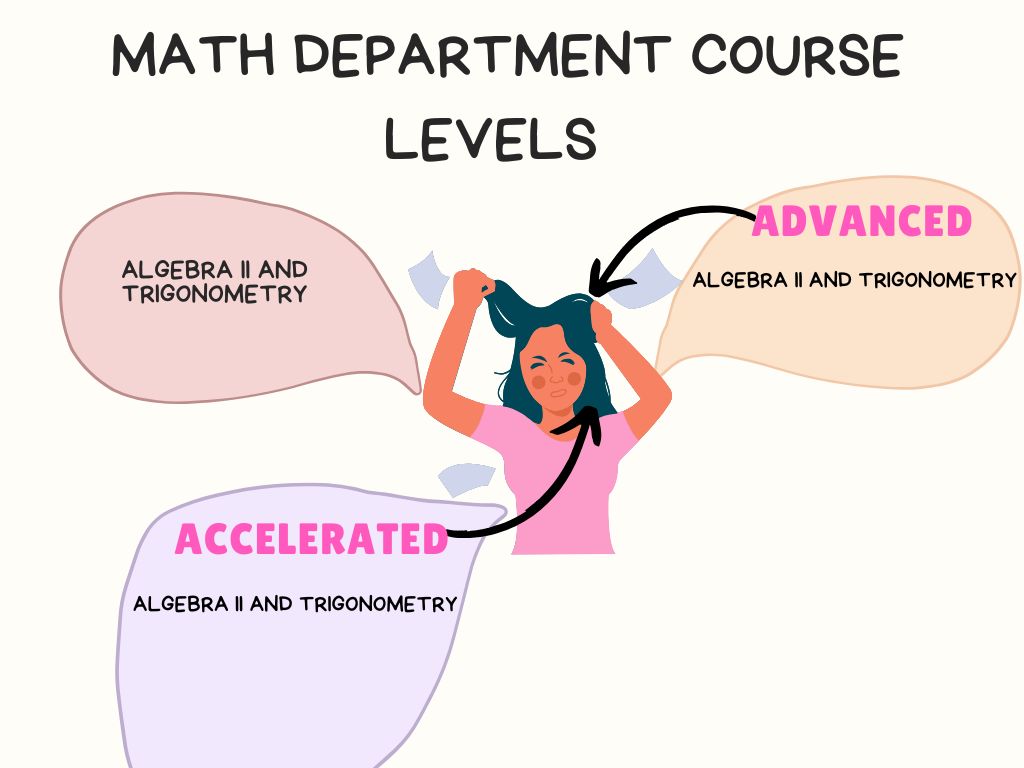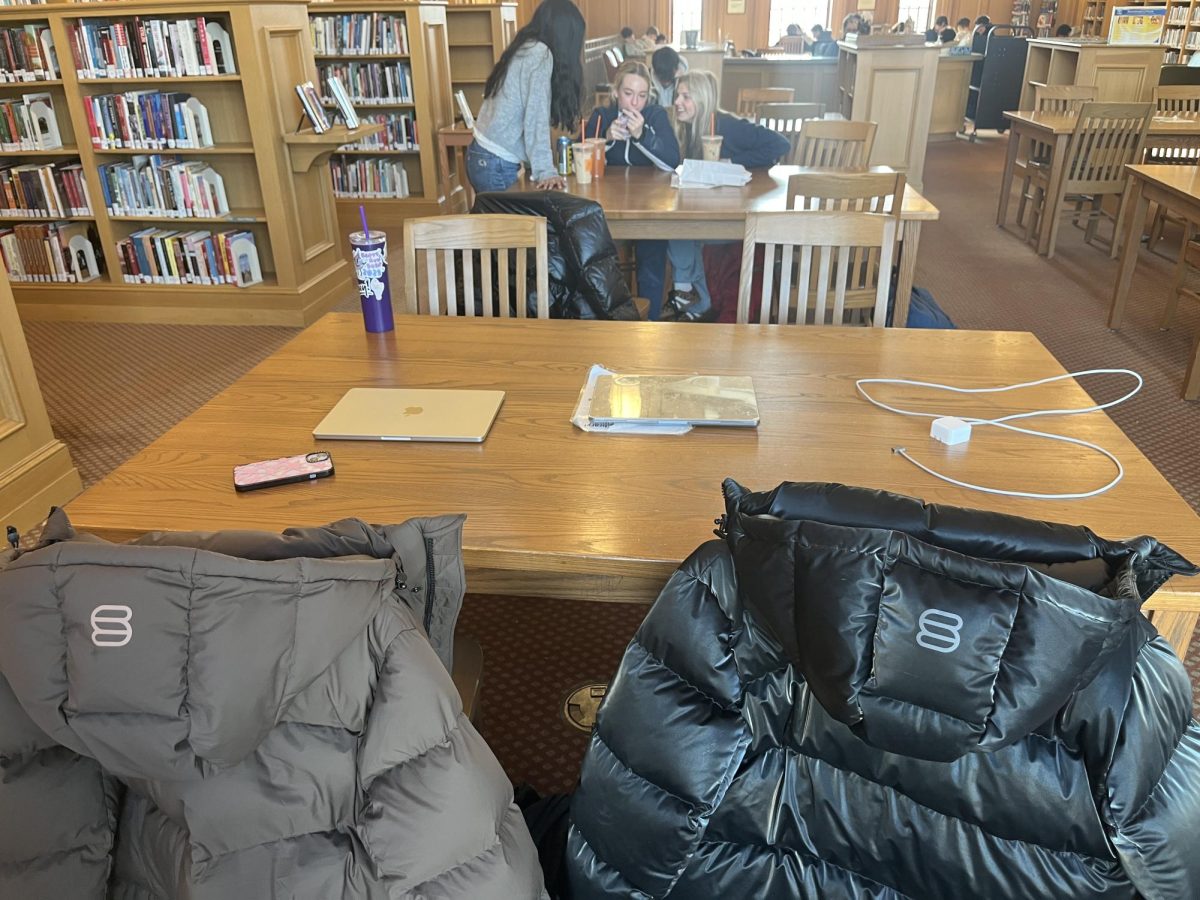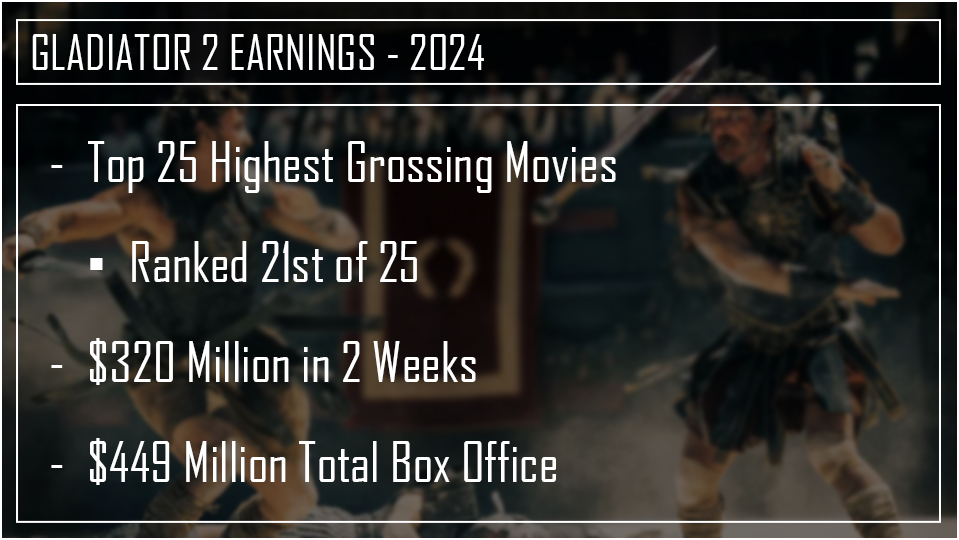Can you remember a life without TikTok? As the popular content creation app TikTok rises, so does the crippling addiction to cell phones, the risk of depression, the spread of fake news, and the increase in security risks.
The TikTok Time Trap
From children to adults, it seems like TikTok has infiltrated everyone’s daily routines, where people have subconsciously incorporated the rabbit hole of scrolling on TikTok as a step in their daily routines like brushing their teeth. TikTok’s addictive algorithm has many in a chokehold, causing them to return each day as they are entranced by the videos on their screens.
Many people I know set aside time each night right before bed just to scroll on TikTok, calling it “TikTok Time.” This time keeps people up at late hours of the day, instead of going to bed and getting quality sleep, which is especially important for youth development and productivity. Additionally, the blue light emitted from our phones can disrupt the production of melatonin which makes it harder for users to fall asleep after scrolling.
TikTok is affecting the productive lives of many individuals. Instead of doing homework and other daily tasks, children and adults spend time scrolling on the addictive app, and before they know it, hours have passed and their work is still not done.
On average, children spend two hours each day on TikTok, but I personally know people who have spent upwards of four hours each day on the app. This makes me question: is the youth of America wasting their precious young years hiding behind their screens and prisoners to the addictive algorithm of TikTok?
I believe yes. I urge my peers to consider: when we are older and look back at our younger years, what do we want to remember? Our hours spent on TikTok, or the positive lasting impacts we’ve made in the world and the genuine connections and phone-less memories that we have created?
Time To Open Our Eyes
Many blame their high TikTok screen time as a necessary remedy to cure their boredom from their excess free time, but I know there are many other solutions. We need to put our phones down so we can open our eyes to see what is around us, instead of watching a curated video on our screens intended to hook us for even longer.
A jarring example of the need to disconnect from our screens occurred when 13-year-old Dillon Reeves, without a cell phone, saved his school bus and peers from crashing. While the bus driver collapsed, Reeves, without the distraction of a phone, quickly intervened and stopped the bus to prevent tragedy while his peers were too distracted on their phones to notice what was occurring. This is a reminder of how cell phones and addictive apps like TikTok can make us very unaware of our surroundings.
A False Reality
With the ability to alter reality and falsely depict elements of life, TikTok has become a breeding ground for unrealistic comparisons. Many young viewers view the romanticized lives of “TikTokers” and begin to desire lives they don’t have, even though these romanticized lives are merely a facade and curated only to show the good parts of one’s life from an elevated point of view. I will admit that I, like many others, have fallen victim to watching TikToks and wanting something I don’t have. The problem with this is that we begin to fixate on all the things we don’t have, instead of appreciating all the amazing opportunities we already have.
With TikTokers blowing up overnight and earning large amounts of money from millions of views, many youth watching these videos no longer have the desire or drive to work traditional jobs. I see how this can be a problem when children are thinking: “If she can dance on TikTok instead of working and still make a lot of money, then I can do the same thing.” While forms of content creation can be a challenging and rewarding job, the problem is that children are flocking to desire these jobs because they see them as “easy.”
Mental Health and Classrooms
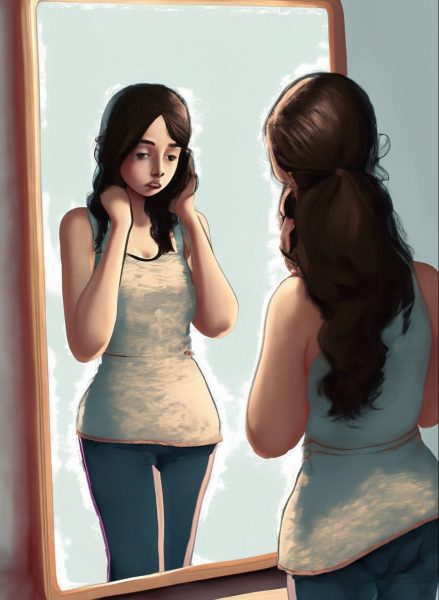
Social media platforms, such as TikTok, have caused unrealistic beauty standards that affect many teens, especially teen girls. This has caused an increase in body dysmorphia and eating disorders among youth, as they try and achieve the altered and unrealistic bodies they see online.
Children, specifically young girls, desire the unrealistic beauty standards created from social media platforms including TikTok. With beauty filters and influencers claiming to be “natural” despite many cosmetic surgeries, it is hard to tell what is real and what is not. With these influencers body checking on social media, young viewers begin to think they should look a certain way. Additionally, there has been a surge of “AI Influencers” on TikTok, which are influencers who use AI filters that alter their bodies to achieve a “perfect” look. The issue is that many children don’t recognize this is fake, and they compare themselves to these unrealistic influencers. This creates many insecurities surrounding normal human features, which causes children to develop body dysmorphia and various eating disorders.
Although many say that banning TikTok won’t solve these problems because other social media apps cause these same concerns, I disagree. TikTok’s algorithm is unlike that of any other social media platform because it is able to keep users engaged for much longer than other apps because its videos cater to short attention spans. This fact is worrisome because the longer children spend time on TikTok, the more likely they are to develop depression and anxiety. Between the years of 2009 and 2019, a time where social media increased in popularity, the rates of depression nearly doubled from 8% to 15.8%. Many studies have shown that the increased usage of social media can cause depression because the lack of in-person interaction causes children to feel more disconnected and isolated. With the ban of TikTok, there would be one less app that can cause children to be depressed. Ultimately, the ban would help protect the youth and future generations of children in America.
TikTok has also impacted children beyond their mental health and has manifested its way into classrooms. Many teachers report that children have shorter attention spans and have trouble focusing in class. Apps like TikTok can be responsible for this because of how highly addictive they are. After watching so much TikTok, children are used to being relayed a lot of information in a 30-second video and struggle to stay focused for the entirety of a class period.
Deathly Trends
TikTok can also influence children to participate in dangerous trends that can cause hospitalization and in some cases death. For example, the “Blackout Challenge” challenged users to see how long they could deprive themselves of oxygen until they would pass out, reassuring people they would wake up right after. This challenge caused a reported 15 deaths of children under 12, including the death of a 9 year old girl who hung herself with a dog leash after being influenced to participate in the challenge. TikTok also spreads trends and challenges that promote immoral acts such as theft and vandalism. The “Devious Licks” trend influenced users to steal objects from their schools such as urinals and soap dispensers, or vandalize parts of school property such as floor tiles. Children feel pressure to partake in these trends to “fit in,” especially when their peers want to recreate these negative trends that surface on TikTok.
Security Threats & Fake News
There are many security threats that come with having a TikTok account. Since TikTok is a Chinese owned company, TikTok may be subject to releasing data collected from American users to the Chinese government. The Chinese government obtaining this sensitive and private information could pose serious threats if personal information is collected and used negatively. If China can control the For You Page (the page where users watch recommended TikTok videos), then they can promote content that influences American children to see anti-American and pro-communist content.
Many turn to TikTok as a search engine to answer questions they have about simple things such as how to use a product, or something more significant such as world news. TikTok can be a major medium where fake news is received and spread because of peoples’ lack of checking reputable sources, and instead turning to TikTok to provide their daily news. If China and the Chinese Communist Party are able to use TikTok to promote certain ideologies, this could also pose threats for future elections.
China Protects Their Children, Why Shouldn’t We?
While the parent company of TikTok, ByteDance, is ramping up their algorithm to make American kids and adults more addicted to TikTok than ever, China is protecting their children. The domestic version of TikTok in China, Douyin, has many features to reduce addiction and protect Chinese children. Those using Douyin under 14 are limited to 40 minutes a day on the app, and can only use the app between 6 a.m. and 10 p.m. to ensure they don’t stay up late scrolling. China has recognized the potential threats of over consumption of technology and social media, and they have done something about it. If the Chinese government is taking extreme measures on the use of this Chinese owned app to protect their children, then why shouldn’t we?
In a recent study done by Lego partnering with NASA, they surveyed American, British, and Chinese children to see what careers children would most likely want when they are older. The survey found that 30% of children from the U.S. and the UK wanted to become vloggers (video bloggers)/YouTubers (this being the largest desired occupation) and only 11% wanted to become astronauts. The results were flipped for Chinese children. 56% of children in China said they wanted to become astronauts, while only 18% wanted to become vloggers/YouTubers. This information demonstrates a major difference between the influences of technology and social media platforms in China and the U.S. As TikTok increases in popularity, it is only a matter of time before the desired vloggers/YouTubers’ occupation becomes outnumbered by the desire to become TikTokers. If Americans implemented the same restrictions as China, would our children be less wrapped up in the world of social media, and aim for more traditional jobs such as becoming an astronaut?
Despite being a Chinese-owned company, ByteDance can place these same restrictions on American users as they do on Chinese users, but they don’t, which makes this all the more concerning. They don’t care about American children and the negative impacts an app like TikTok can have, so we, as Americans, must care. Regardless of the app’s intentions at its creation, it is clear that TikTok has become a weapon pointed right at our American children.
China has not been the only country to place restrictions on the app; countries like India, Australia, Belgium, Canada, France, and the United Kingdom have banned the app from all government-issued phones for fear of cybersecurity threats. Additionally, 39 U.S. states have also banned TikTok from state-issued devices.
The Future With TikTok
Many are not concerned with the existence and usage of TikTok because they say that the Chinese government can only collect data regarding how long we view a video on TikTok, which can only impact the videos they continue to display on one’s For You Page. Despite seeming to be a pro-TikTok argument, I think it gets to the point of why we need to ban TikTok. The problem isn’t just potential security risks, it’s the extreme addiction children have developed to TikTok because of TikTok’s algorithm, which creates concerns for the future of American children.
What will happen if people keep getting their news from TikTok? What will happen if children continuously compare themselves to these influencers and we have a depression epidemic? What will happen if children become so unaware of their surroundings? What will happen if children only dream about becoming influencers? These are all things Americans must think about.
It has become clear that there is only one solution: we must ban TikTok. I challenge you to consider a life without TikTok: do we really need this waste of time? We need to consider the mental and physical sacrifices we are making as we waste hours on the app. It is time we protect American users and reclaim all that we have lost to TikTok.


